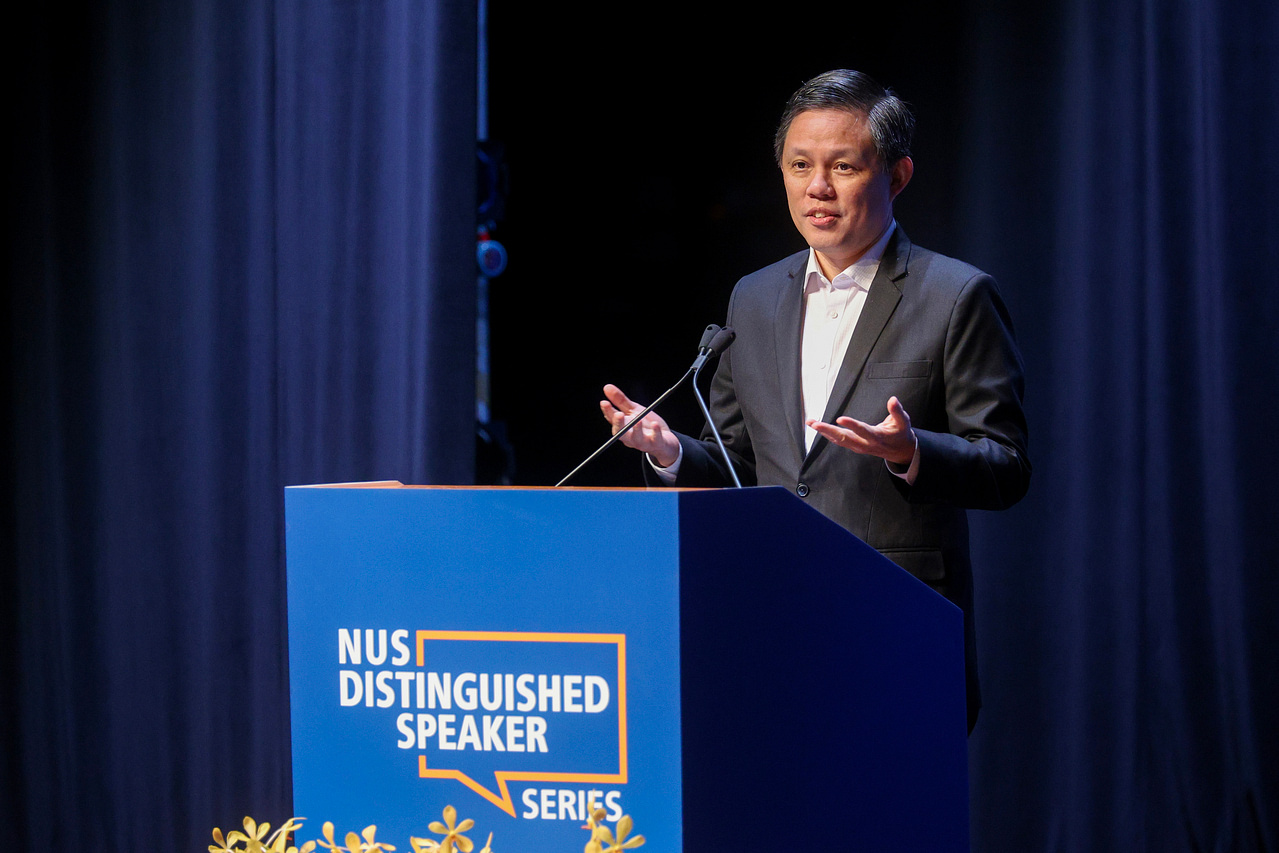SINGAPORE - Four areas of tech innovation are critically important for Singapore as a city-state without natural resources, Education Minister Chan Chun Sing said on Monday at the National University of Singapore.
These are energy and sustainability, biopharma and medicine, urban sustenance, and digital and information innovations, he said in a speech laying out why Singapore must innovate to ensure its survival.
Singapore must remain connected to the rest of the world to tap global opportunities, while policies and organisations must enable people to innovate, said Mr Chan, who is the inaugural speaker for the NUS Distinguished Speaker Series event.
The series of dialogues, which kicked off on Monday, will have speakers sharing their perspectives on pressing issues of the future. The talks will be conducted every few months.
Addressing an audience of about 100 - including university students and staff, as well as polytechnic and junior college students - at the NUS University Cultural Centre, and another 700 participants online, Mr Chan said: "It is not so much just the innovation itself that is important, but it is in the way we organise societies to deliver those innovations and to deal with the challenges and opportunities that come with those innovations that are important."
Outlining the four key areas of tech innovation and why they are vital for Singapore's survival and competitiveness, he said: "(These areas) must play to our strengths in terms of trust and creativity, rather than the size of our resource base. They must give us a better chance to entrench ourselves in global value chains that makes us harder to be bypassed."
Beyond technology, Mr Chan said Singapore must continue to innovate in terms of its connectivity with the rest of the world - whether via air, land and sea, or the non-physical dimensions of data, finance or talent, for example.
"We must be a key node where the world connects for trade, data and ideas."
As a small country, Singapore will always aim for more talent, he said.
"We must be bold in pioneering new forms of connectivity to draw from the talent networks of the world.
"When we remain open, and connected to the world as our hinterland, we will never need to fear that our size will be a constraint. Instead, our size can allow us to be more nimble than many others."
Lastly, Singapore must also ensure that its policies continue to support innovation, said Mr Chan.
"We need policies that are progressive, predictable and innovation-friendly to connect ourselves to the global economy and entrench Singapore in the global value chain."

On the socio-economic front, innovative strategies will also be needed to uplift the local workforce, and help people keep pace with global competition and mitigate the disparity in opportunities and outcomes, among other issues, he added.
"The improvements in humankind's living and working conditions can never come sustainably from acquisition of more resources and more land," said Mr Chan.
"Instead, innovation is the key to unlock the potential of humans and our societies."
Addressing questions later during the 1½-hour session, Mr Chan said education institutions like NUS can do more to translate its research and innovations into enterprise.
They can also contribute by attracting global talent, he said.
"How can NUS be a trusted platform for talents from all over the world to come, work together, spar together, learn from each other and create new ideas?"
Good innovations must also be inclusive of different segments of society, like those who are older, for example, he added.
In fact, an ageing society could be a driving force for innovation, he said, like in Japan.
"The most important point is that we all move forward together. And that is how actually Singapore has overcome many of our challenges in the past, where we have choices to make," said Mr Chan.
"We may not have made the perfect choice, and along the way we may have to make adjustments. But it's the cohesion that allows us to keep striving forward and making sure that in the process, nobody feels left out."


